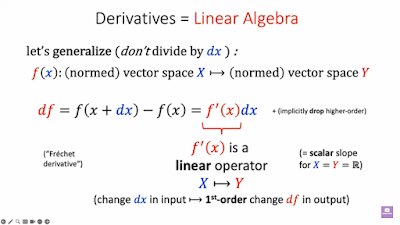Another Curt Jaimungal Interview With Roger Penrose
This is the third one!
My comments:
35:03 The idea that "the collapse of the wave function" is connected with time is what Carlo Rovelli calls the thermal-time hypothesis isn't it? So any measurement event is the tick of a clock, with a before and an after, which has to be recorded in some low entropy macroscopic state which in turn sets up the boundary conditions for the subsequent unitary evolution of the "quantum state". So the light-cone structure we abstract from all these macroscopic records of measurement events is the large-scale cosmological structure. What's the problem?
37:32 Wait, didn't he say a physicalist was someone who believes that nothing that goes on in the human mind violates physical law? That does not mean that everything that happens in the human mind is somehow caused by known physical laws, because physical law may not be complete, .... oh wait, ... that's what Penrose doesn't like about quantum mechanics, its incompleteness (55:48).
1:05:40 Wheeler at Princeton and information again. If measurements produce information, then that has to be recorded in some physical medium to be accessible to reason. So there is a necessary physical condition on which all experiments are predicated. So conscious awareness has to be awareness of something for the information to have any meaning and that awareness needs to be intersubjective for physicists to be able to communicate experimental results to each other. That's the sense I understand Wheeler's phrase "it from bit".
1:24:00 Interesting observation about how mixed-up psychological time really is.
1:32:36 Question from Michael Levin about "Platonic Space". See Michael Levin's 17 minute talk below, where he claims that Platonists cannot be physicalists because of the number e, amongst other things.
1:38:30 On quantum and classical "realities" see Physicists Reproducing Experiments. See Penrose's article in Consciousness and Quantum Mechanics for the details!
1:40:42 In this example the information that needs to be recorded in the macroscopic state of the world is the relative orientation of the spin-measurement devices AND the preparation of the singlet spin-state at the start. How do you separate this latter from the experimental outcome? Is that what “backwards along the light-cones” means? [see Chris Fuchs on that fiduciary quantum measurement.]
12:09 "Experiments have shown that [some quite simple] deterministic machines actually do become the interfaces for intrinsic motivations of behaviour and these patterns in general that are not just complexity, not just unpredictability, but actually well-recognisable cognitive competences". It sounds like he is not far off saying which natural numbers are intelligent: they're the ones that code for Goedel sentences of certain formal systems, presumably. Also in this discussion with David Spivak.
Subscribe to Curt Jaimungal and Michael Levin.
Next on the queue:
1:12:54 The Born rule as the essence of quantumness. See Gabriele Carcassi on The Correspondence Between Quantum and Classical Mechanics.
1:30:23 Lev Vaidman can imagine a world in which the Born rule is never used because every measurement is on a state which is prepared in such a way that there is only one possible outcome. It is difficult to see how one could learn anything in such a world: there would be no way to sense the passage of time, and no moments before and after which something became known to someone.
1:47:21 Michel Bitbol says phenomenology turns everything back to lived experience, and in the case of classical physics you can construct an interpretation of those experiences as corresponding to an imaginary underlying ontology that is independent of those separate experiences, but in the case of quantum physics this is not possible (in general). Then the question arises as to whether there are features of lived experience which lead you to believe that they are shared with others. But surely those connections are through the records of events which allow us to know that we are talking about the same events, be they spin-measurements or singlet state preparations or what-have-you? It was Gallileo’s idea to use clocks to measure the tick-rate of other clocks, which seems to be a purely phenomenological procedure to measure time. See Carlo Rovelli Trying to Explain the Thermal Time Hypothesis to A General Audience.
Subscribe to Hervé ZWIRN.


Comments
Post a Comment